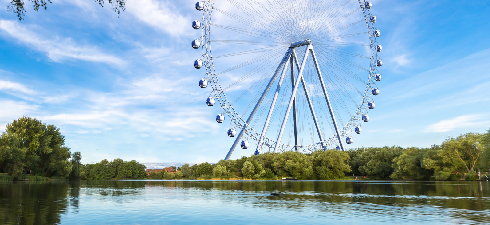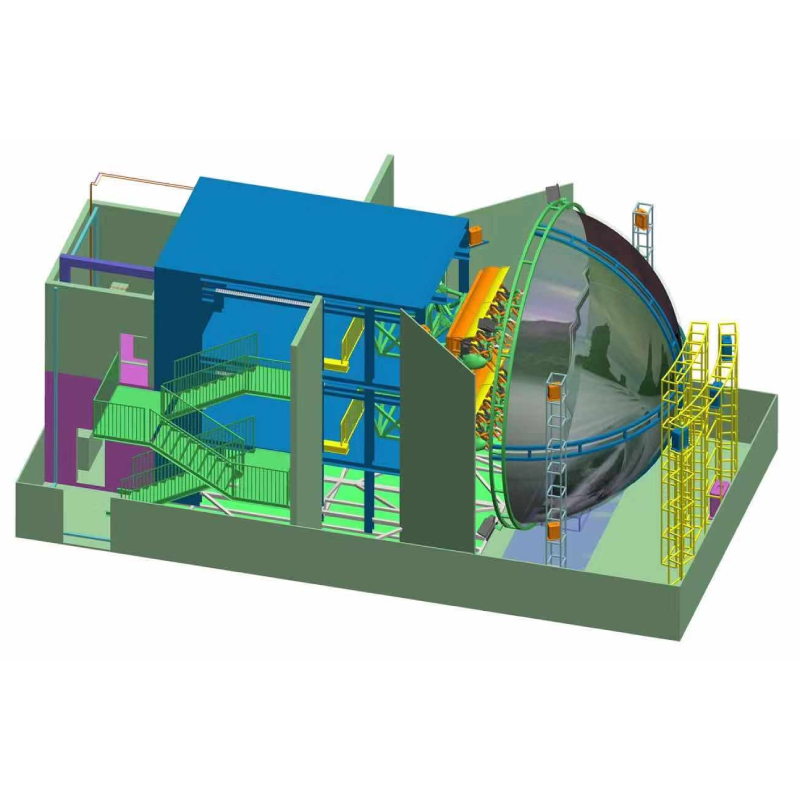ferris wheel for sale
Purchasing a Ferris wheel can be a monumental decision and one that combines both exhilaration and meticulous planning. As a fundamental amusement ride, a Ferris wheel is not only an icon of fun but also a brilliant business opportunity. Whether for a theme park, a local fair, or a private enterprise, buying a Ferris wheel involves understanding numerous factors to ensure both profitability and safety.

Experience is paramount when investing in such an amusement attraction. Speaking to industry veterans can offer invaluable insights. For instance, Bob Jamison, who owns several amusement parks across the United States, emphasizes the significance of establishing partnerships with reputable manufacturers who provide robust after-sales service and maintenance support. His experience reveals that a successful purchase begins with examining past client testimonials and visiting operational sites to witness the ride's performance and upkeep firsthand.
Expertise in technical specifications is another crucial aspect of buying a Ferris wheel. Components such as the size, capacity, and speed must align with business goals and target demographics. Consulting with mechanical engineers and safety experts can provide clarity on the latest technological advancements and safety protocols. Susan Lee, an amusement ride consultant, often advises clients to prioritize rides that meet international safety standards, such as those set by ASTM International or TÜV SÜD, ensuring the Ferris wheel's longevity and reliability.

Authoritativeness in the industry can steer potential buyers toward successful acquisition. Engaging with globally recognized trade shows and conferences, such as the International Association of Amusement Parks and Attractions (IAAPA) Expo, can help identify credible sellers and innovative designs. These gatherings are not only a hub for the latest industry trends but also a place where established professionals share key strategies for maximizing return on investment through effective ride placement and themed customization.
Trustworthiness is essential in solidifying any transaction. Establishing a solid rapport with sellers based on transparency can mitigate risks associated with such a significant purchase. Contracts should include clear terms of warranty, liability, and performance guarantees. Additionally, ensuring that third-party inspection reports are readily available can provide an unbiased assurance of the Ferris wheel's condition and compliance with regulatory bodies.
In summary, purchasing a Ferris wheel is a multifaceted endeavor that requires experience, expertise, authoritativeness, and trustworthiness. By leveraging industry insights, technical knowledge, authoritative networks, and transparent dealings, buyers can secure not only a visual marvel that captivates audiences but also a profitable investment that stands the test of time. Such a commitment promises not just an addition to a skyline but also a timeless piece of entertainment history that continues to delight generations.
-
Top Amusement Equipment Manufacturer Rock n Roller Coaster & Carousel ManufacturerJun.10,2025
-
World's Scariest Roller Coaster Experience Ultimate Thrill & HeightJun.10,2025
-
Ultimate Thrill Ride Roller Coaster High-Speed, Safe AdventureMay.30,2025
-
Carousel Mansfield Rides Premium Indoor & Event SolutionsMay.30,2025
-
T3 Roller Coaster High-Thrill, Safe Ride for Theme Parks & ResortsMay.30,2025
-
Roller Coaster Cart Design Custom-Built & High-Safety Thrill Ride VehiclesMay.30,2025
